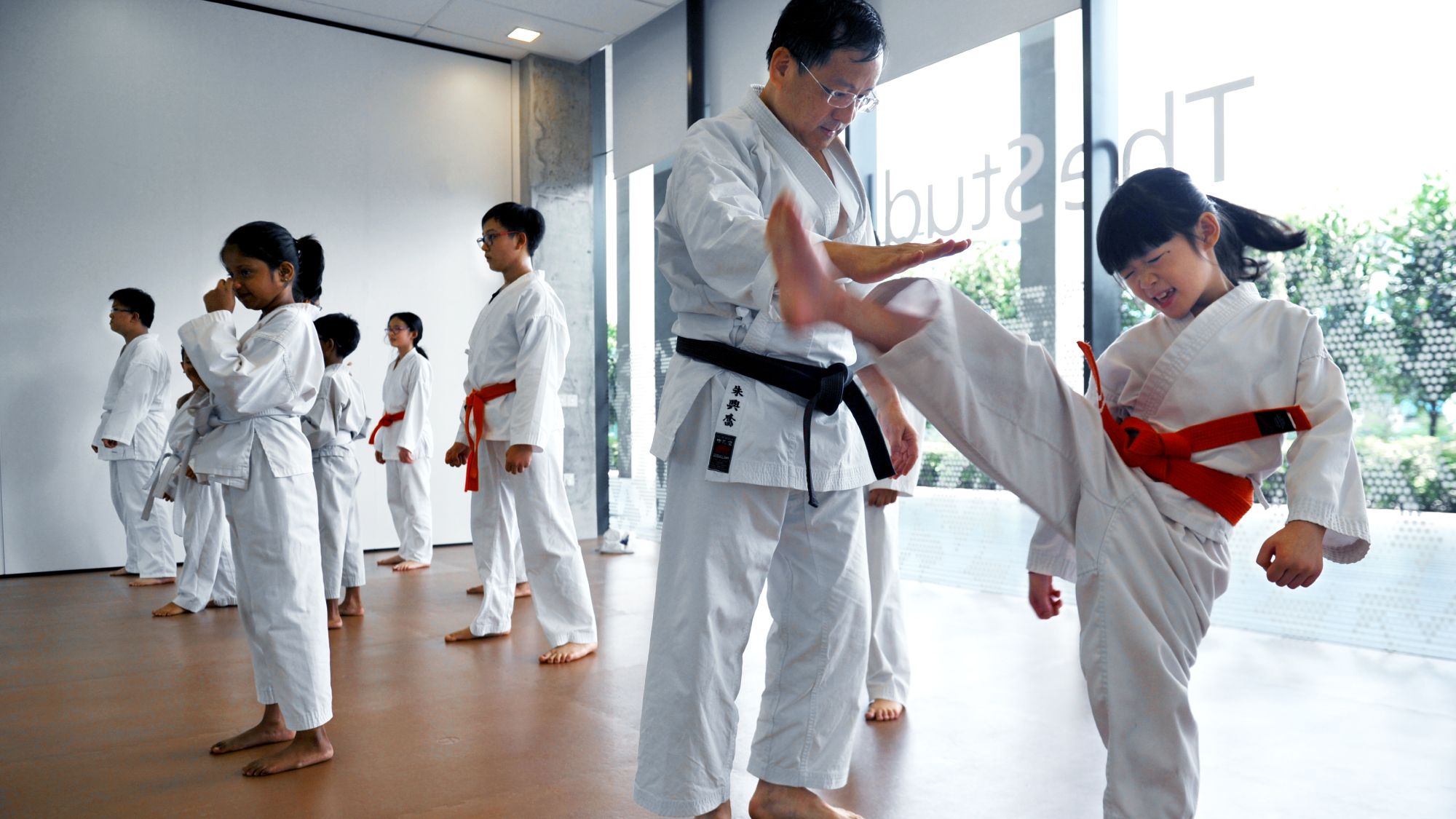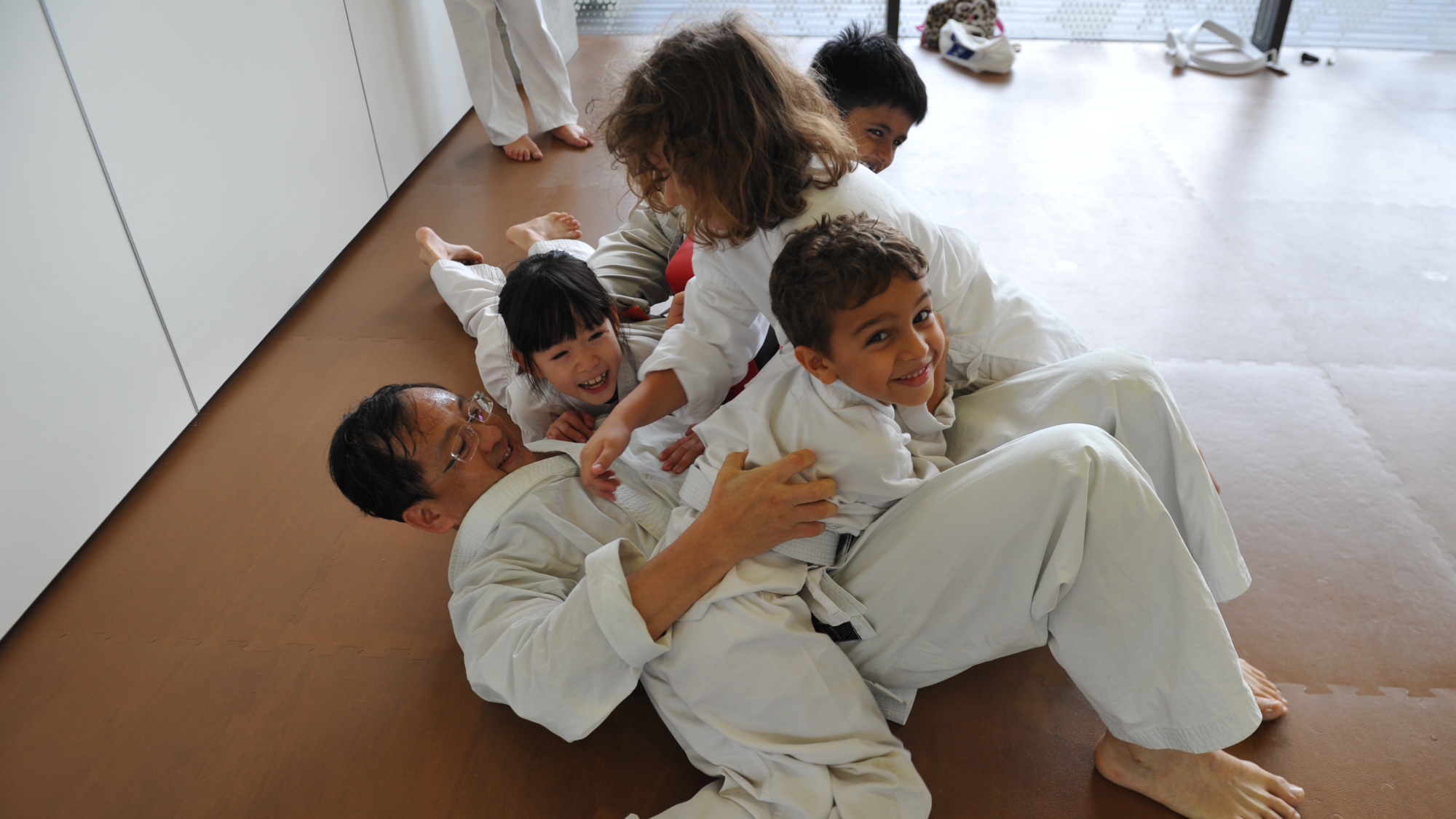Living in the Moment with Karate
When Associate Professor Too Heng-Phon slipped and fell over the sidewalk at the NUS Business School more than 10 years ago, he made a life-changing decision to join his friend in a karate class.
As a teenager, the biochemistry professor practiced qingwu (a type of Chinese martial arts) from his uncle who was a master back in Malaysia, but stopped after he went to the United Kingdom to further his studies. The slip brought him up short.
“I thought, that’s not me. It’s always one of those things – you think you’re still in condition, but then suddenly you realise, no you’re not. So that’s something of a tipping point,” said Assoc Prof Too.
He joined the Ken Yu Kai Karate Association Singapore to learn the Shitoryu style of karate, one of the four major styles of karate in the world and founded in 1934 by karateka Kenwa Mabuni. Assoc Prof Too belongs to the fourth generation of students learning the Shitoryu karate style from a 75-year-old shihan (master instructor) Ishikawa.
“If you learn something, you learn it from the masters,” he said.
Art imitates life: starting his karate journey was not a breeze as he struggled to muster the moves, just as he battled to get his biotech company off the ground. (The Warrior’s Way to Biotech Success, MediCine, August 2017)
Assoc Prof Too unknowingly infused the moves he picked up from qingwu into karate, and his sensei had to keep telling him to un-learn the qingwu moves as they were interfering with his progress. It took him months before he was able to adapt to the new style.
After a decade of training, Assoc Prof Too is now a second dan black belt. But he believes he still has a long way to go.
Black is for beginners
“When you get the black belt, that’s when you begin to learn. You start learning to do the little movements correctly, because it will be embarrassing if you don’t know how to do execute them. You are filling the gaps you thought you knew,” he said.
Outside of his teaching and research work, Assoc Prof Too dedicates three days each week to practising and teaching the martial art to children and adults. He is also the vice-president of the Ken Yu Kai Karate Association Singapore. Pressed, he confesses to a preference to learning from other karatekas rather than teaching.
When you teach a class, you teach (the students) your style. When you follow (other teachers), you learn new styles. To me, there are always endless things to learn,” he said. It’s this endless quest for knowledge and understanding that draws the man to karate and keeps him practising. Its philosophy has influenced and shaped all aspects of his life. “When you take up karate, it’s not a matter of trying to hurt somebody. In fact, you don’t want to hurt anybody. We have a lot of moves to stop people from attacking. It’s a good philosophy, which we are trying to teach young people to do the same – don’t fight. It’s a good thing to instil in the young ones to know their strengths and abilities, and yet choose not to hurt,” he said.
“If you learn something, you learn it from the masters”

Assoc Prof Too and students.
Karate is good for you
Assoc Prof Too is now a changed man because of the virtues karate instilled in him.
“Karate taught me discipline, in work, in life, and in play. Sometimes you make a lot of excuses for a lot of things. There are a couple of times I am totally taken in by work, and I come to class and we have kumite (freestyle fighting), and I get hit many times. Then I realise I have to focus. This focusing power is good, it helps you to put things away. In karate, you basically live the moment. It’s not just fighting alone, the discipline calms me down, gives me perspective, and it centres me. To me, this is very valuable,” he said.
Assoc Prof Too’s love for karate extends beyond his dojo (karate school).
Since his only child Zackaria Tusqa Too was eight years old, Assoc Prof Too has been coaching him in karate. Now, the 13-year-old has progressed to a brown belt.
“At home we do a lot of katas, and I teach him kumite. My wife always complains about the grunts and yells that accompany our moves,” he said.
“Assoc Prof Too believes that karate is a sport for everyone, even senior citizens.
“The good part about karate is that there are many levels, so you don’t have to learn to do all the fancy moves. Senior citizens can learn it in their own way. So I will encourage everyone to pick it up and just do what they can. It’s not doing something good for your heart alone, you learn a skill. For older folks, that’s very important,” he said.

The Sensei is no match for his students.
